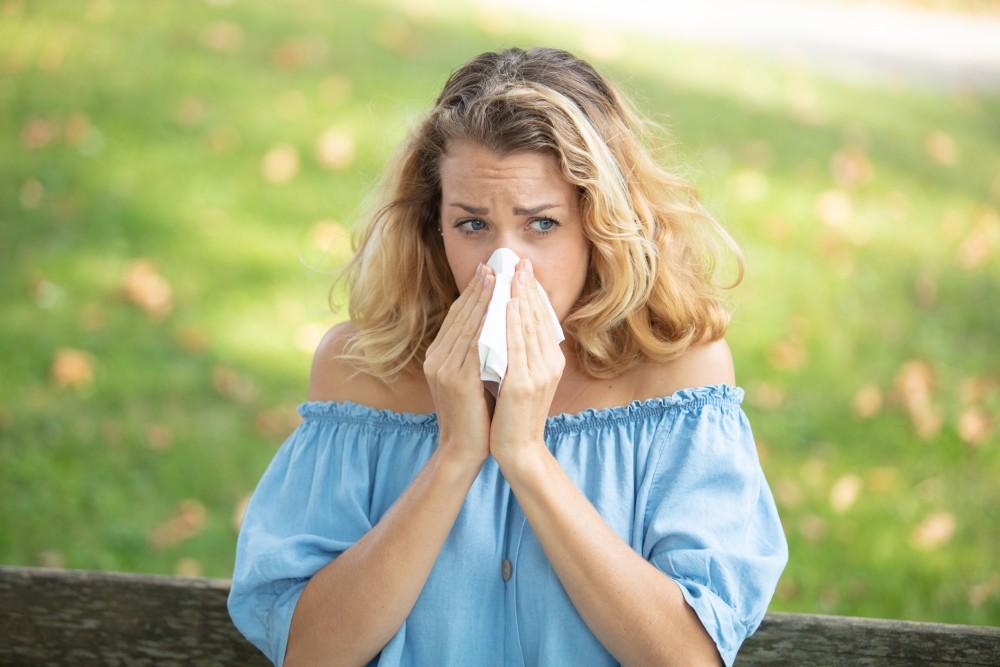
The Link Between Allergy and Asthma

Most people are familiar with the idea of allergies and many have at least a passing knowledge of asthma, but what happens when someone experiences an allergy and asthma at the same time? Allergy-induced asthma, also called allergic asthma, affects around 15 million people in the United States. Here’s everything you need to know about this phenomenon and how you or a loved one could find relief at Respacare.
What Is Allergy-Induced Asthma
Asthma is a condition characterized by narrow, inflamed airways that may become clogged with thick mucus. This swelling and mucus can make it difficult for someone to breathe, and asthma sufferers may experience coughing, wheezing, and/or shortness of breath. Allergy-induced asthma has similar symptoms, but in this case, the asthma symptoms are triggered by an allergen. Because your body thinks allergens are as dangerous as viruses or bacteria, they go into attack mode. That battle can lead to tons of inflammation and an asthma flare-up.
People with allergy-induced asthma may be triggered by seasonal allergens, such as pollen, or they could be affected by environmental allergens, such as pet dander, mold, or dust mites. Some people may even experience asthma symptoms because of something they ate or put on their skin. While it can be difficult to pinpoint what causes an asthma flare-up, knowing your triggers could be immensely helpful in avoiding those triggers and finding long-term relief.
Symptoms of Allergy-Induced Asthma
Allergies and asthma share many of the same symptoms, including:
- Coughing
- Wheezing
- Shortness of breath
- Quick breathing
- Tightening of the chest
If you experience any of these symptoms and suspect you may have asthma that’s being triggered or exacerbated by allergies, it’s important to call your doctor and schedule an evaluation. He or she can conduct tests to see what you may be allergic to.
One of the main treatment options for patients with allergic asthma is to avoid known triggers.
- Monitor pollen counts and avoid prolonged periods outdoors when pollen counts are high
- Minimize exposure to pollen and other outdoor triggers, such as grass, by keeping car and house windows closed and cleaning air conditioner filters regularly
- Have pets routinely groomed, consider switching from carpet to tile or hardwood floors, and keep pets out of the bedroom (if not out of the home entirely)
- Take steps to prevent mold growth and cockroach infestation, such as investing in pest control services and keeping wet zones (bathroom, kitchen, etc.) clean and dry
Treatment Options with Respacare
Respacare can help you cope with allergy and asthma issues. Our allergy testing process is both comfortable and effective — because there are no needles, you won’t have to deal with pain. Our approach also means there’s no need to wait for a referral to a specialist. The procedure takes just 10-15 minutes, and you’ll have your results shortly thereafter.
If you are diagnosed with an allergy that’s affecting your well-being and causing asthma flare-ups, you may benefit from a treatment called sublingual immunotherapy (SLIT). This multi-step regimen involves orally ingesting a serum that’s customized to your allergy test results. You place the drops under your tongue according to the recommended dosage and schedule. As the dosage slowly increases, you can safely build up immunity to your allergens and, hopefully, reduce or even eliminate allergy-related asthma triggers.
Sublingual immunotherapy takes between 12 and 24 months to reach peak efficacy, and results vary from patient-to-patient. Some people find relief quickly, while others report incremental change. If you think SLIT could be right for you, ask your doctor if you’re a good candidate.
Get Help For Your Allergy And Asthma Issues
The symptoms of allergic asthma are inconvenient at best. At their worst, they can be downright debilitating and lead to serious breathing issues and an inability to do the things you love. Don’t let coughing, sneezing, and shortness of breath keep you from enjoying life. To learn more about allergy and asthma treatment options or to get tested yourself, contact our Bridgewater, NJ, office at 732-356-9950.
You Might Also Enjoy...


What Causes Respiratory Allergies and Can They Be Prevented?

Is Sleep Apnea a Life-Threatening Condition?

How to Stay on Top of Your Lung Health

The Benefits of a ResMed AirMini™ for Travelers


